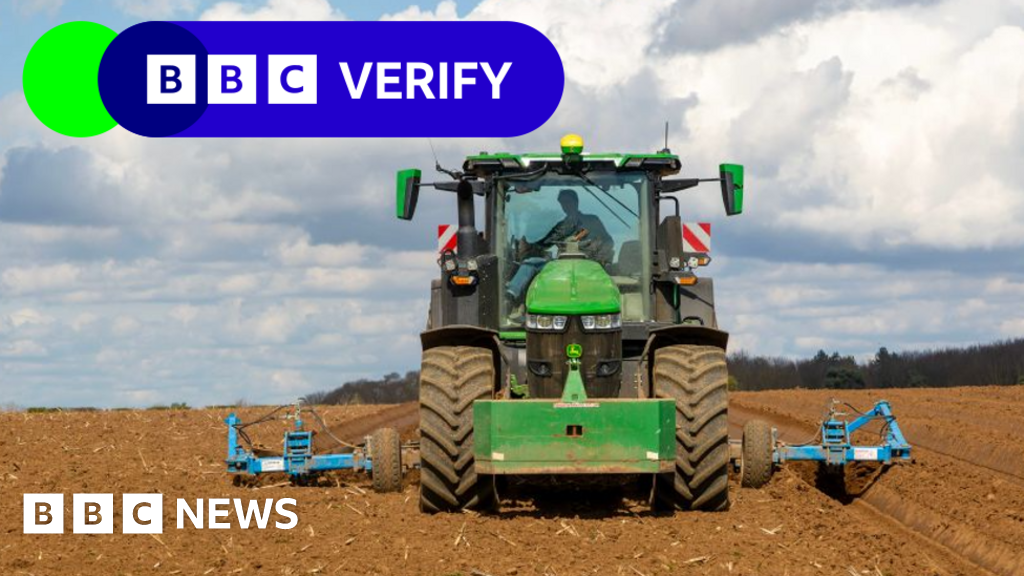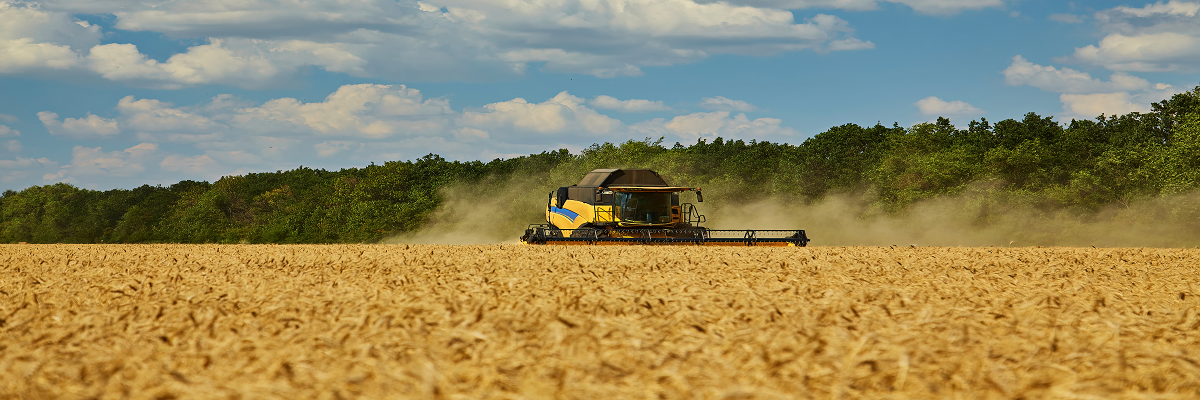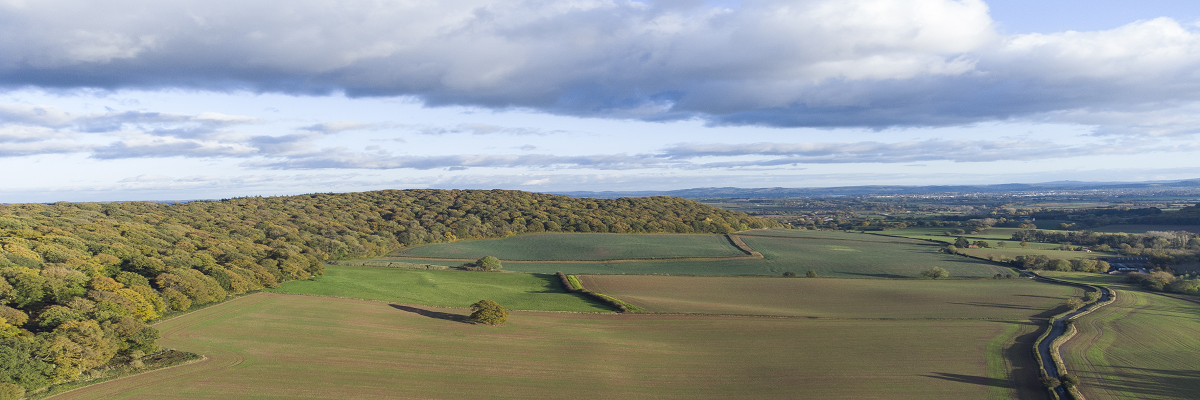Discriminates quite hard against single parents.Luckily, there is no need to rely on numbers thrown out by people wanting handouts for multimillionaires.
Here''s a more reliable source.
View attachment 363365
You are using an out of date browser. It may not display this or other websites correctly.
You should upgrade or use an alternative browser.
You should upgrade or use an alternative browser.
Farmers on the march
- Thread starter blup
- Start date
Sponsored Links
24% are >100 hectares. The average price per HA is 11k, so those 24% are farms worth 'only' a million or more.I've used the values from the above links. Nothing made up:
- value per acre, yield per acre and then how many fall above the limit is all you need to know.
final piece of the puzzle here. Figure 1.4 Seems ~25%ish would be landed with 500k+ tax bills should the owners die and pass the farm to descendants.
and if you look here:

Agricultural facts: Summary
www.gov.uk
I must be getting something wrong here, because you'd need roughly 300ha to be subject to IHT at all, which means far fewer farms would be affected at all, let alone subject to 500k (wouldn't that need a farm value of 5.5m or around 500 ha)?
- Joined
- 31 May 2016
- Messages
- 17,546
- Reaction score
- 2,662
- Country

and the unmarried.
- Joined
- 31 May 2016
- Messages
- 17,546
- Reaction score
- 2,662
- Country

corrected for you.24% are >100 hectares. The average price perHAacre is 11k, so those 24% are farms worth 'only' a million or more.
I must be getting something wrong here, because you'd need roughly 300ha to be subject to IHT at all, which means far fewer farms would be affected at all, let alone subject to 500k (wouldn't that need a farm value of 5.5m or around 500 ha)?
Sponsored Links
- Joined
- 31 May 2016
- Messages
- 17,546
- Reaction score
- 2,662
- Country

Those arguing that it's only a tiny portion affected are ignoring that it's the case per year.
unless farmers are particularly prone to dying, that is always going to be the case.

unless farmers are particularly prone to dying, that is always going to be the case.

How many farms would be affected by Budget changes?
Estimates of the number of farms affected range from 100 to 70,000.
www.bbc.co.uk
The pie industry is a special case. Surely you are not suggesting that multimillionaires with pie shops should received less handouts than multimillionaires with farms.
Greggs may be essential to you, but it's not essential to the survival of the nation.
All businesses have failures. Farming is unique, they can be technically bankrupt with a single crop failure but lenders will support them if they are doing well in the longer term and because they want their loan repaid.I think they are mostly both.
if you look at farm sizes and yields per acre, the value of the farm based on the price per acre (I suspect the value is a bit more once you look at machines and equipment or perhaps its priced in?). Either way, it's a really sh@t business to be in. The profitability ratio based on ROA is incredibly poor.
These two links show what a farm is worth and what a farm earns. I know some on here think its BS, but I suspect these are fairly reasonable:

Updated arable farm profit forecasts for harvest 2024
Forecasts for profitability from harvest 2023 and for harvest 2024 from Strutt & Parker’s arable farm profitability modelrural.struttandparker.com

Agricultural land values in England reached a new record in 2023
Q4 2023 edition of Strutt & Parker’s English Estates & Farmland Market Review which shows that non-farmers bought more farms than farmers in 2023.rural.struttandparker.com
Some people asked why are they protesting. I have answered that, The income on assets ROA is appalling for a farmer and it is this, that the government has failed to understand. That does't mean I support their protest or that I don't think there are some very wealthy "farmers" who do it for tax reasons.
But on the face of it. A 350 acre farm, that passes to direct descendants is going to get a 1/2 a million tax bill which they have to find from 50k per year net profit.
Post war, farmers survived because of tax breaks and subsidies, but also because of their ability to diversify into agricultural and non agricultural businesses when government support changed. They are incredibly resilient and will survive this. Politically and by nature they are conservative and could take a leaf out tne French farmers more communal approach when negotiating with the big supermarkets.
Farm land dropped in price after the war as 99% death duties forced landed classes to sell, the “small” farmers of today have probably had it in the family for no more than 3 or 4 generations.Plus, they've potentially been passing wealth down, tax-free, for generations, have they not?
- Joined
- 22 Jan 2007
- Messages
- 16,723
- Reaction score
- 2,348
- Country

Most have money available to cover it, don't worry.final piece of the puzzle here. Figure 1.4 Seems ~25%ish would be landed with 500k+ tax bills should the owners die and pass the farm to descendants.
I didn't ask. You have an opinion though.I wouldn't be a farmer.
Let them adapt YOU said.
Sadly the average greggs buying person doesn't understand that...Greggs may be essential to you, but it's not essential to the survival of the nation.
Along with those who live on a diet of junk food delivered by 'L plate' moped/E-bike gig economy slaves!
I’ve already replied above.What effect do the other allowances have, for example when the deceased owner had a spouse or civil partner? Biking's assertion should not be treated as if it was true.
"The Treasury has set out that full exemptions for transfers between spouses and civil partners will continue to apply. There are also nil rate bands for inheritance tax which people would retain access to on top of the £1mn. A nil rate band is an amount of an estate that can be passed on free of inheritance tax. The tax-free allowance for residences is £175,000 per person. Each person also has a £325,000 tax-free allowance that can be applied to all types of assets."
You of course have proof of this claim?Most have money available to cover it, don't worry.
I am not a Greggs user, but I think Regan is moving towards the idea of tax handouts dependent on a Virtue rating. Or perhaps depending on customer wealth. So the owners of Waitrose would be rated less than the owners of Poundland.Greggs may be essential to you, but it's not essential to the survival of the nation.
An interesting concept.
Who would assess the relative Virtue of different multi-millionaires?
The word “seems” is doing a lot of heavy lifting.Seems ~25%ish would be landed with 500k+ tax bills should the owners die and pass the farm to descendants
Sponsored Links
Similar threads
- Replies
- 6
- Views
- 788
- Replies
- 7
- Views
- 910
B
- Replies
- 9
- Views
- 459
- Replies
- 35
- Views
- 4K
- Replies
- 92
- Views
- 15K
